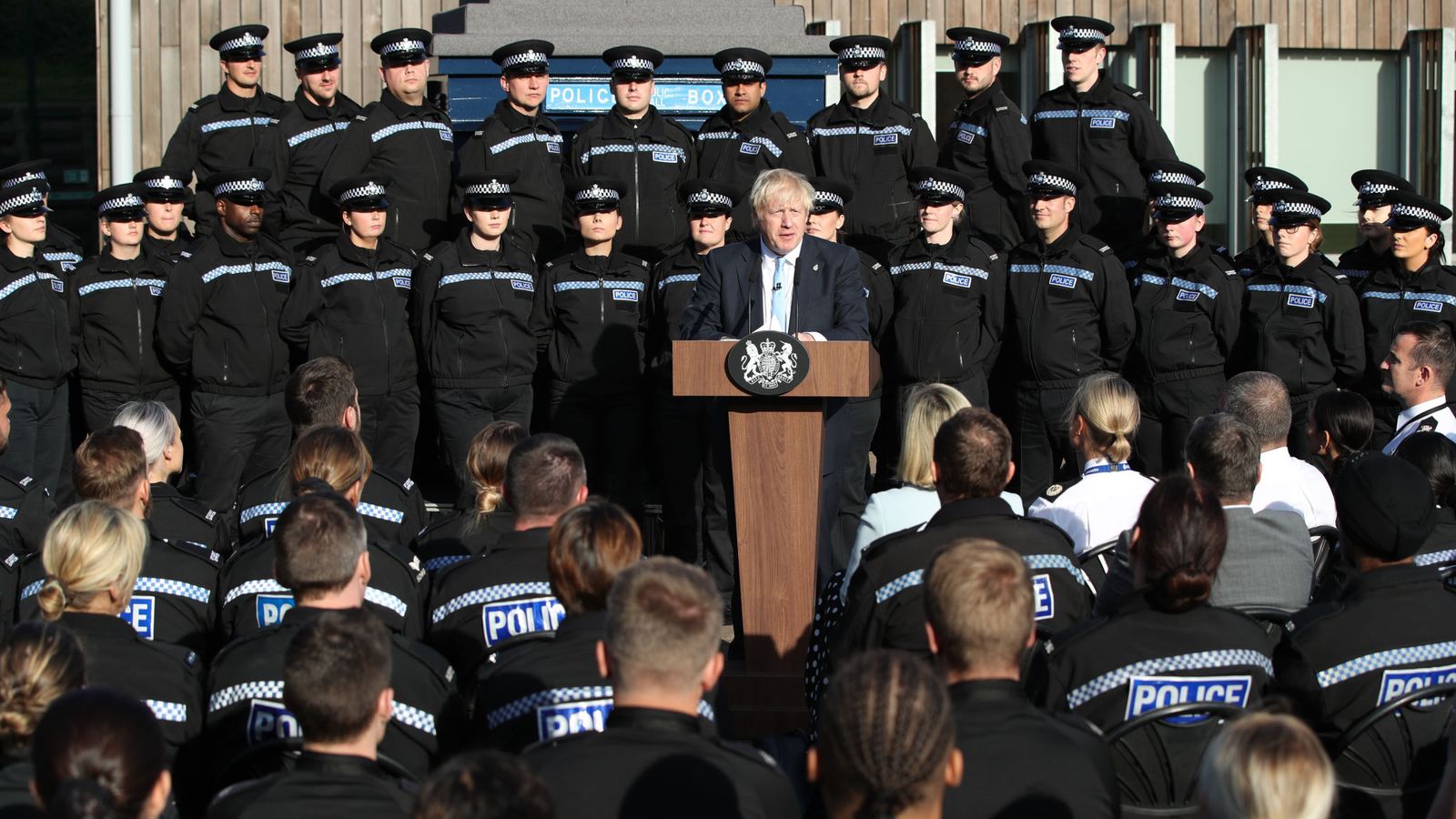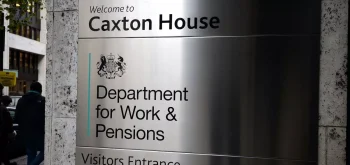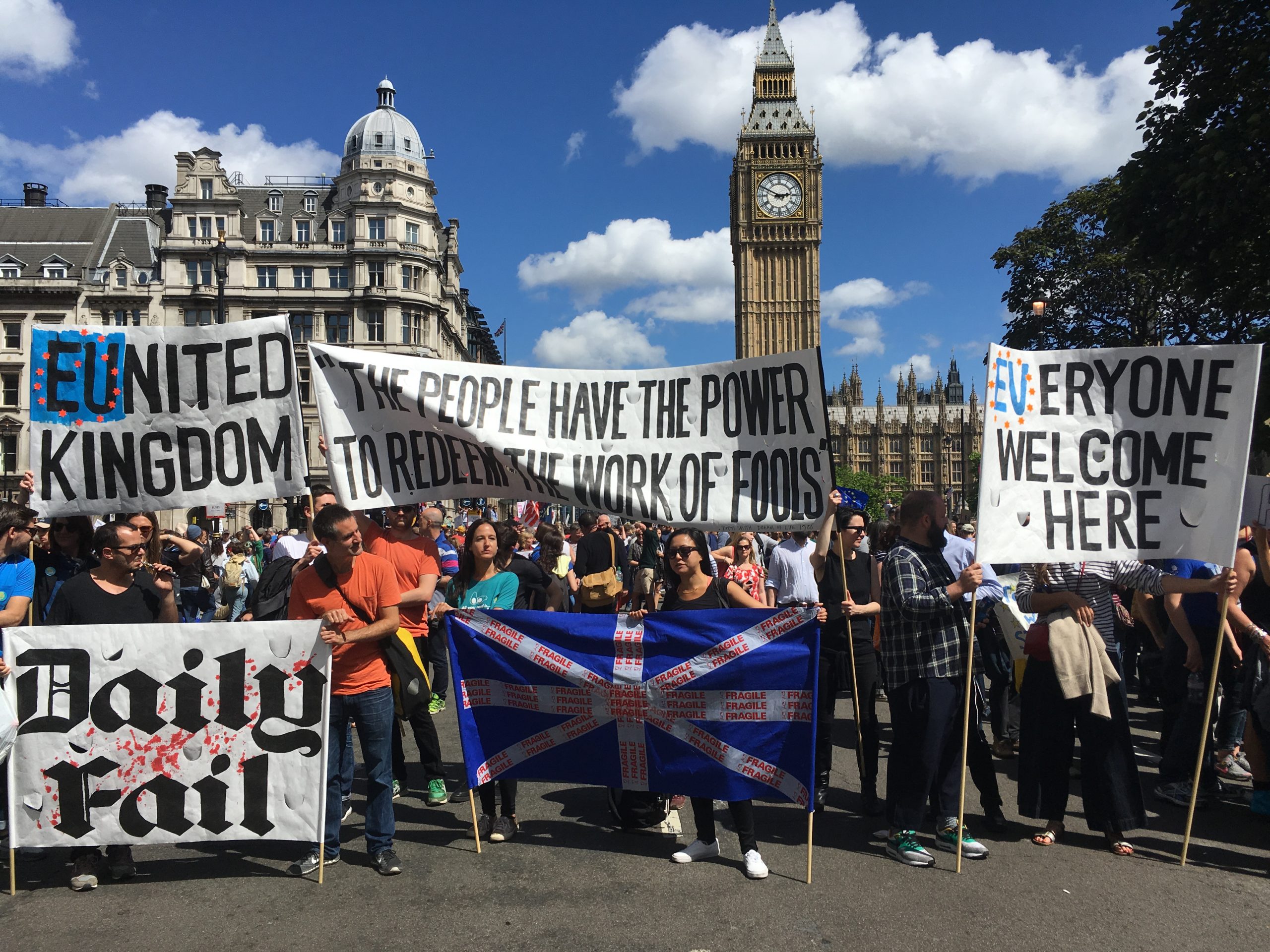Elections should be battles of ideas, where political ideologies are brought into the public arena to face the judgement of the people. If 2019 election battle is supposed to be about ideas in the plural, it is falling some way short, with little other than Brexit truly up for debate.
Brexit has eroded the traditional divide of right against left, supplanting it with leave against remain, with many on the Tory right finding that they now have more in common, particularly on the economic front, with the Liberal Democrats and Labour moderates than with their own party.
This departure from ‘right-left politics’ has upended domestic policy, with the Conservatives, in particular, seeing their policies and principles transmogrify to appeal to their new electoral base, a base that is far removed from the broad church that put Cameron in Number10 in 2010 and 2015.
The desire to appeal to Brexit supporters en masse means that fiscal moderation has exited stage left, replaced by an economic populism in the style of the European right. Whilst austerity ostensibly ended under Theresa May, her policies suggested a termination of austerity in principle more than in reality. There is little risk of this happening with Johnson, who seems intent on doubling the deficit with every press conference and interview he gives.
So far, the Tories have promised to increase police numbers by 20,000, invest millions in the NHS, and tack on £4,000 for each primary school student, with most calculations having the Conservatives’ spending promises at least matching those of Corbyn’s Labour party.
When this is coupled with the fact that Johnson’s Brexit deal is predicted to shrink the economy by up to 3.5% over the coming years, pragmatic economics no longer seem form part of the Conservative party’s political thinking. Instead, populism is the order of the day, funding the state’s frontline in order to buy a disaffected population’s votes.
This leftward lurch nullifies a key advantage of Jeremy Corbyn. On many issues, including foreign policy and defence, Corbyn’s position is toxic to traditional Labour voters and swing voters, even if his economic policies are generally viewed with a sympathetic gaze, as a welcome departure from the hard-nosed bean-counting that had gone on before.
Such voters may have been willing to grit their teeth and put a tick in the Labour candidate’s box, hoping that Corbyn’s more worrying instincts would be constrained by his Cabinet or by state bureaucracy, but by promising a similar approach, the Conservatives have neutralised much of the economic argument. Now, Labour have to instead turn the economic debate towards their even more left-wing policies, such as nationalisation of much of the private sector, like the reclamation of utility companies – polices that are more controversial than simply raising state spending.
Whilst this economic volte-face may enable the Tories to hang on to voters who have tired of fiscal parsimony, alone it will be unlikely to pull leave-supporting Labour voters en masse across the aisle, even when coupled to their Brexit policy. The Conservative brand is still toxic throughout much of the leave-supporting heartlands, so more than economics will be necessary to pull voters across – and, importantly, keep them from Nigel Farage’s reptilian embrace. This need for further transformation has meant that the Conservatives have begun to re-embrace social conservatism, abandoning Cameron’s ‘hug a hoodie’ policy in favour of a return to ‘traditional values’.
This is where the real ideological fight is likely to be had. As the resignations and defections ofex-ministers like Nicky Morgan and Sam Gyimah show, the Conservative party has excised its liberal, One Nation instincts. Instead, it looks increasingly like Poland’s Law and Justice Party who have recently become the governing party there, or like Salvini’s Lega Nord in Italy, where populism has taken hold of economic and domestic policy.
Priti Patel being appointed as Home Secretary will drag home affairs back to the dark ages, making May look like a sopping wet liberal. Johnson has already drafted the police into the backdrop for his speeches, a helpful image for election propaganda, whilst Patel has taken a draconian line on police powers, including stop and search, and has endorsed tougher sentencing and harsh prison conditions. Rhetoric like this will be ramped up over the coming weeks, especially if the polls have Corbyn encroaching on the Tory’s double-digit lead.
This rhetoric is particularly effective given Corbyn’s peacenik ways. Whilst Labour has always had soft underbelly on justice, Corbyn’s liberal instincts make them even more vulnerable this election. Labour have already promised to reverse the cuts to the legal aid budget, creating an ‘army’ of social welfare lawyers, and are likely to continue in this vein, with a liberalising stance on drug policy, and reformist ambitions in prisons and in sentencing. That all of this is necessary, and more likely to prove effective in the long term will be irrelevant, if Johnson’s snake oil successfully appeals to the majority’s baser instincts.
This could leave Corbyn with the more complex task. He has to walk the tightrope between appealing to the remain voting, liberal intelligentsia (many of whom are already hostile to him), and keeping the socially conservative but Labour supporting regions onboard (who are often opposed to him due to Labour’s vacillating Brexit stance). In contrast, Johnson knows that in many of the Tory safe seats, Brexit is likely to be enough to see him over the line, with those supporting his vision of Brexit unlikely to be distressed by a return to social conservatism.
The positions of the two main parties make this an impossible election for liberals and moderates on either side, with the regressive and harmful social justice policies of the Conservatives just as unpalatable as some of the economic policies of Labour’s militant left. Instead of running on ideas, our politicians are peddling emotion, with populism now at the heart of our political establishment.
Little optimism is left for the moderate centre, other than the hope that Jo Swinson is kingmaker on December 13th, a bulwark against the rising tide.







Back from the looking glass